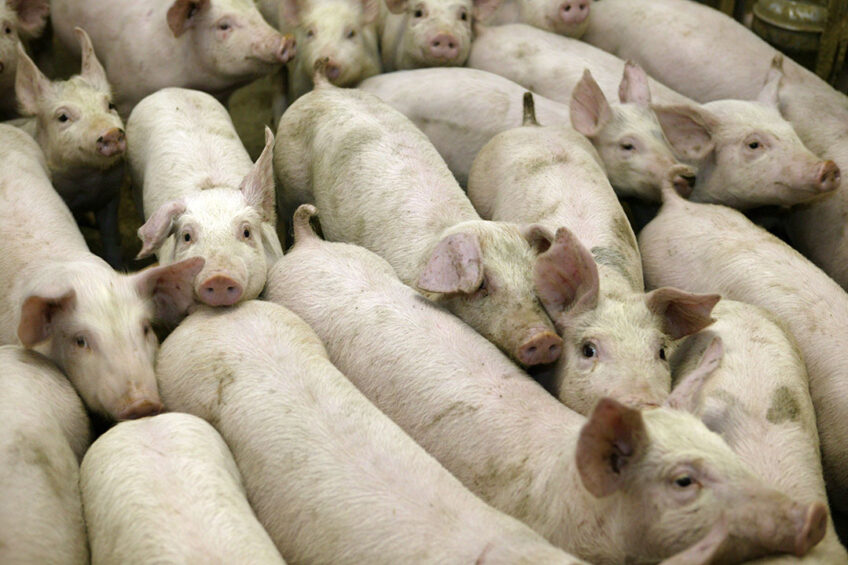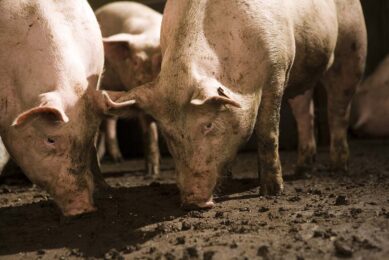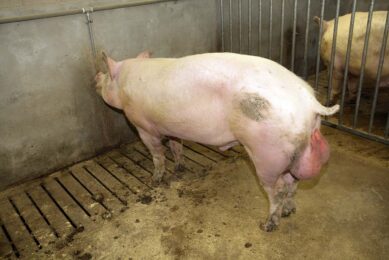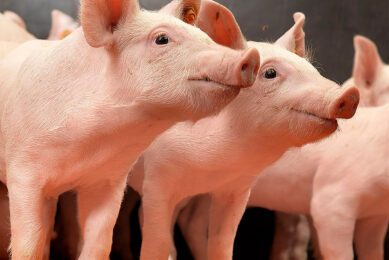What impact does a fight have on pigs?

The outcome of a contest between 2 unfamiliar pigs can have an impact on their attitude towards subsequent aggressive encounters, according to new research.
While aggressive pigs are less likely to learn from losing a fight, non-aggressive pigs are significantly more affected by winning or losing a social conflict. The aim of the study, published in the peer-reviewed journalApplied Animal Behaviour Science, was to improve the welfare of pigs on commercial farms where aggression can lead to injury, social stress, poor growth and a drop in immunity.
The study was carried out by scientists from Scotland’s Rural College (SRUC), UK; Queen’s University Belfast, UK; University of Edinburgh, UK; and the Polish Academy of Sciences.
In a press release by SRUC, it was explained that the scientists used the qualitative behaviour assessment (QBA) method – which assesses the body language of animals in different situations – to record the emotional state of the pigs in a dynamic social situation, especially when confronted with unfamiliar pigs.
Pig ear posture, direction of gaze and squeals
Using ear posture, direction of gaze and vocalisations such as grunts and squeals, the team of researchers measured how personality (aggressiveness towards an intruder) and the experience of winning or losing a contest when paired with an unfamiliar pig, influenced how the animals felt when they were next put back into the ‘unfamiliar pairs’ situation.
Rather than being fearless and over-confident, they found highly aggressive pigs showed more negative emotions than low aggressive pigs when confronted with a strange pig. They were also less likely to learn from past defeat.
SRUC researcher Dr Emma Baxter recently spoke at a Pig Progress webinar devoted to Free Farrowing, which can be viewed here in its entirety
What is being an aggressive pig like for a pig?
Lead researcher Lucy Oldham, a postgraduate research student at SRUC, said in the press release: “A key aim of this study was to find out what being an aggressive pig is like for the pig – which is really important when it comes to solving the problem of aggression on farms.
“Our results show that the welfare of both aggressive and non-aggressive pigs suffers. It is therefore advantageous for all animals if we can find ways to reduce their aggressiveness by providing social and physical environments that encourage their best natures.”
The study in Applied Animal Behaviour Science was authored by Lucy Oldham, Marianne Farish, Francoise Wemelsfelder and Simon P. Turner, SRUC; Gareth Arnott, Queen’s University Belfast, Northern Ireland, UK; Irene Camerlink, Polish Academy of Sciences, Poland; Andrea Doeschl-Wilson, Roslin Institute, University of Edinburgh, Scotland, UK.
 Beheer
Beheer








 WP Admin
WP Admin  Bewerk bericht
Bewerk bericht